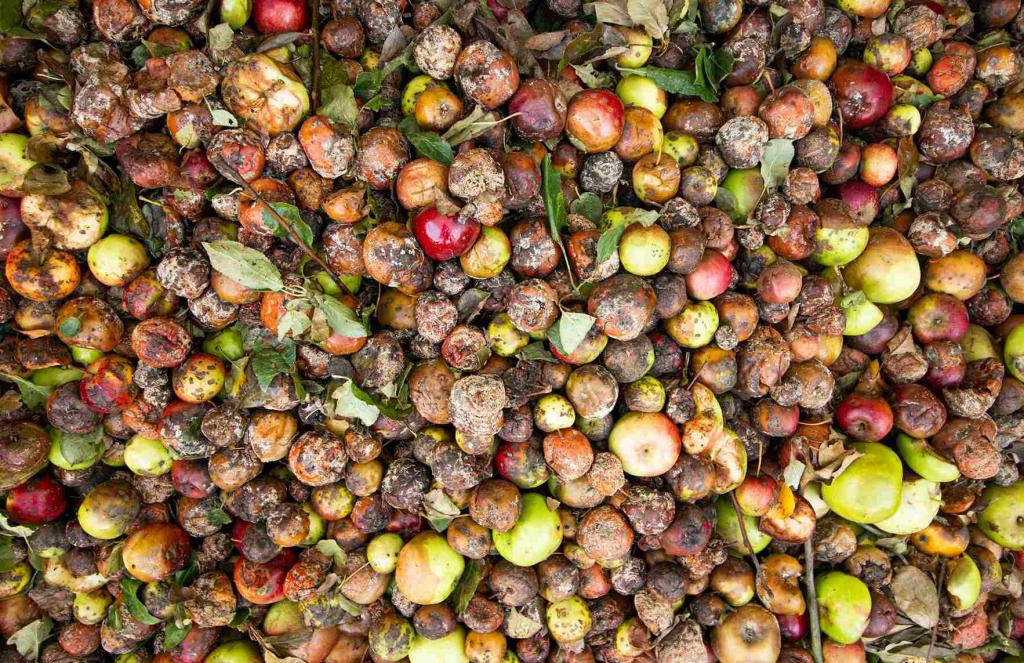Thessaloniki gets ready for its metro launch in November
The underground rapid transit lines have been under construction for almost two decades due to various project delays
 TheMayor.EU logo
TheMayor.EU logo 
84% of respondents also think that wasting food is an issue that should be adressed, Source: Marek Studzinski / Unsplash
The Minister of Agriculture urged citizens to plan better in order to reduce their personal household waste
Yesterday, the Luxembourgish government released research on the country’s food-wasting habits. According to the survey, 91% of residents throw away food regularly but, paradoxically, 84% believe that this is an important issue that needs to be addressed through awareness campaigns.
The study also pointed out that 69% threw away food at least every month, while 26% would waste certain types of food every week. Moreover, the products that were wasted most often, meaning at least once a month, were unfinished meals (42%), fruit (42%), bread (40%) and vegetables and dairy (27%).
Additionally, 75% of respondents were having trouble with the correct interpretation of best before dates, while by far, the biggest sources of food waste were private households. Households with children tend to throw away more food, which is due to a lack of time to pre-plan meals and because children have what the government calls “eyes larger than their stomachs” - an expression related to compulsive food purchasing.
According to a statement by Luxembourg’s Agriculture Minister, Claude Haagen, the tremendous amount of food waste was not due to household intentional behaviour. Instead, it is a result of incomplete information about transporting fresh produce from markets to the home.
He also pointed to misunderstandings with Best Before dates, incorrect storage and overestimating needs during promotional sales. He explained that with the study, authorities can now better understand the root cause of the problem and aim for future action.
Minister Haagen also pointed out that reducing food waste was a priority and urged citizens to look for ways to cut back on this through local action or by implementing a course-correction exercise in the household.

The underground rapid transit lines have been under construction for almost two decades due to various project delays

Now you can get your wine in Talence by paying directly in Bitcoin

That’s because the state has to spend money on updating the railway infrastructure rather than subsidizing the cost of the popular pass

Rethinking renewable energy sources for the urban landscape

The examples, compiled by Beyond Fossil Fuels, can inform and inspire communities and entrepreneurs that still feel trepidation at the prospect of energy transition

Now you can get your wine in Talence by paying directly in Bitcoin

The 10th European Conference on Sustainable Cities and Towns (ESCT) sets the stage for stronger cooperation between the EU, national and local level to fast track Europe's transition to climate neutrality.

At least, that’s the promise made by the mayor of Paris, Anne Hidalgo

The underground rapid transit lines have been under construction for almost two decades due to various project delays

At least, that’s the promise made by the mayor of Paris, Anne Hidalgo

Hostal de Pinós is located in the geographical centre of the autonomous region

Despite its church-y name, the district has long been known as the hangout spot for the artsy crowds

Urban dwellers across the EU are having a say in making their surroundings friendlier to people and the environment.

Forests in the EU can help green the European construction industry and bolster a continent-wide push for architectural improvements.

Apply by 10 November and do your part for the transformation of European public spaces

An interview with the Mayor of a Polish city that seeks to reinvent itself

An interview with the newly elected ICLEI President and Mayor of Malmö

A conversation with the Mayor of Lisbon about the spirit and dimensions of innovation present in the Portuguese capital














